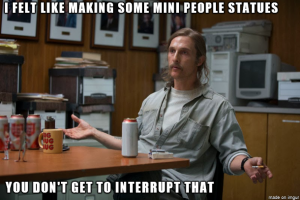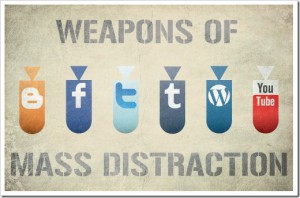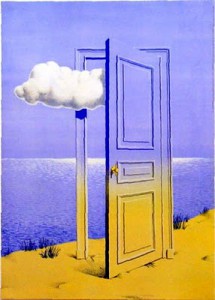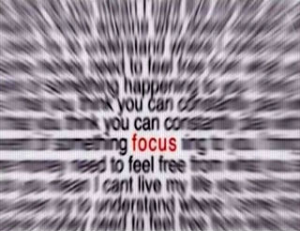Anytime I leave my office door open, I can expect to see my department head, Dr. Ken Calhoon, standing in the doorway with an expectant look. For most people, the sight of your supervisor awaiting your attention might cause alarm; but for me, it is a welcome distraction.
Ken wants to talk TV – usually True Detective, which he knows mostly by heart. I’m pretty sure that the common reference of the show is just bait for me to give my own performance, Cajun impressions and colorful descriptions of what life is “really like down there.”
It’s reassuring to me, somehow, that an old scholar of German, a “serious” man with an intimidating intellect, could spend so much time streaming Netflix. I treasure these awkward office transactions as positive distractions: sure, I fill far too many 50-minute segments of my life by consuming stuff that other people have made, like my girl crush Jennifer Love Hewitt’s show (don’t judge!), rather than creating something in this world (a change of mind, a poem, an idea, inspiration, laughs, memories, what I will not imagine because I am too busy with empty, avoidant distraction), BUT I also find meaning in the distractions that I choose when they are enriching, when they lead to something beyond themselves, even if that it just a conversation.
TV can be the most insulating and numbing of distractions, if we are doing it to avoid thinking about our own lives, much less the world. But it can also provide connections to deepening relationships or interested participation in culture.
Distractions drive your desire to live your life – they are how we “get drunk,” and they are how we fill the painting that one day we will stand back and admire, if we’re lucky. So choose wisely.




